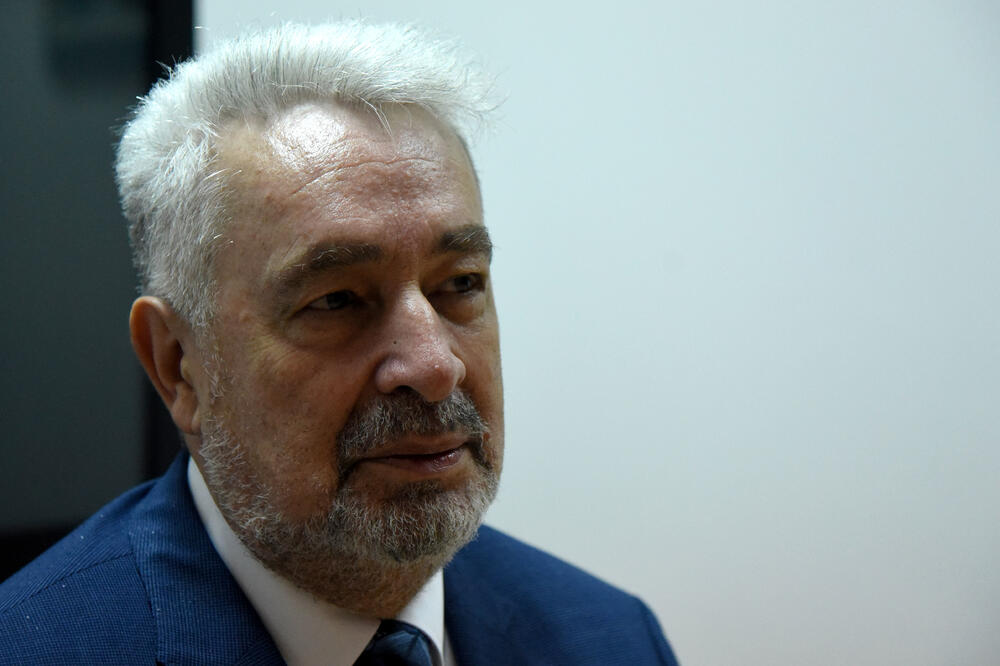Mandatory cannot be freed from the so-called spiritual themes, which, in the interpretation of him as well as his ministers-apostles, take on mostly caricatured outlines.
He didn't do well either with "faith that moves mountains" (If you have faith, you won't have any problems, he says), or with the ill-fated spoon, which, neither this nor this, has become a symbol of a consciousness that rejects reality. The sentence is additionally confusing - that there is concrete evidence? For what? That someone changed the relief with faith? Mobile mountains and the communion spoon thus became the threshold that separates the two halves of Montenegrin society.
"All things are possible to him who believes", are the words of Jesus from the Gospel according to Mark, and from this statement a number of metaphorical statements (Mark, Matthew) were derived, including the one that became the most quoted among them and gained the greatest popularity - about moving mountains.
(Incidentally, we have a very different approach to this phenomenon in another Abrahamic religion - where from the same initial assumption arose an elegant instructive story about the mountain and Muhammad.)
Religious experience is ineffable, and has no obligation to words (logos), but it is unusual to insist on the literalness of this kind of statement. Because when talking about these things, believers can talk about the symbolic dimension. Such an approach, at least for trying to rationalize that story, is the only one that makes sense.
It is confusing at the moment that the mandate holder insists on the literal meaning of such messages (concrete evidence?). Why? Do people think being literal makes them better believers? Is literalism really orthodox in this case? Is this kind of literalism a good recommendation for a candidate? Apostolic work...
One of the best things about belief is that you have no obligation to explain anything - everything has already been explained to you by an act of faith, and you have received/accepted just such a totality of explanations. That is why believers are usually suspicious of those who are skilled with words. Excessive faith in logos and words can be dangerous, and is, as a rule, highly suspect to the orthodox. Although they also "know" that "in the beginning was the Word".
Thanks to a poet, not prophets, I believe "that there is nothing where the word is missing".
And that unlucky spoon - I read that they already use disposable spoons in the Greek Church. Talking all about harsh measures and announcing them, Montenegro seems to have decided on a variant of the Swedish model: the population as a buffet for the corona. Looks like we'll have to come to terms with fate first...
But, it is not only the spiritual clumsiness of the mandate (to put it mildly) that is the reason for unease.
Along with the request to dismantle a freak system, the request for reconciliation is also mentioned more and more often. In principle, there is nothing to complain about that, but... I suspect that it will be the "favorite fog" of the new government. What does that mean? A kind of demagogic refuge, what for the DPS was "protecting the state". They preserved it well. And now they are going to calm her down.
What does the mandate do suggest reconciliation? What is reconciliation in Montenegro? What are we talking about when we talk about reconciliation? Does anyone think that reconciliation involves rehabilitating the darkness of the past? What is the meaning of such an imagined reconciliation? Reconciliation, which would mean any form of rehabilitation of those Montenegrins (and others) who became Konavle arsonists and Bosnian butchers, is neither possible nor necessary for this society.
I am afraid that the reconciliation that is mentioned these Sundays would not actually be reconciliation, but the surrender of a society. To the old wraiths.
I must admit that I do not believe that he is capable of thinking about reconciliation (any kind of reconciliation) who sees in Dežulović "Ustasha trash". He is not able to come to terms with the truth, let alone with his neighbor.
And that's the catch - in order to make peace with your neighbor, you must first make peace with the truth.
Bonus video:





